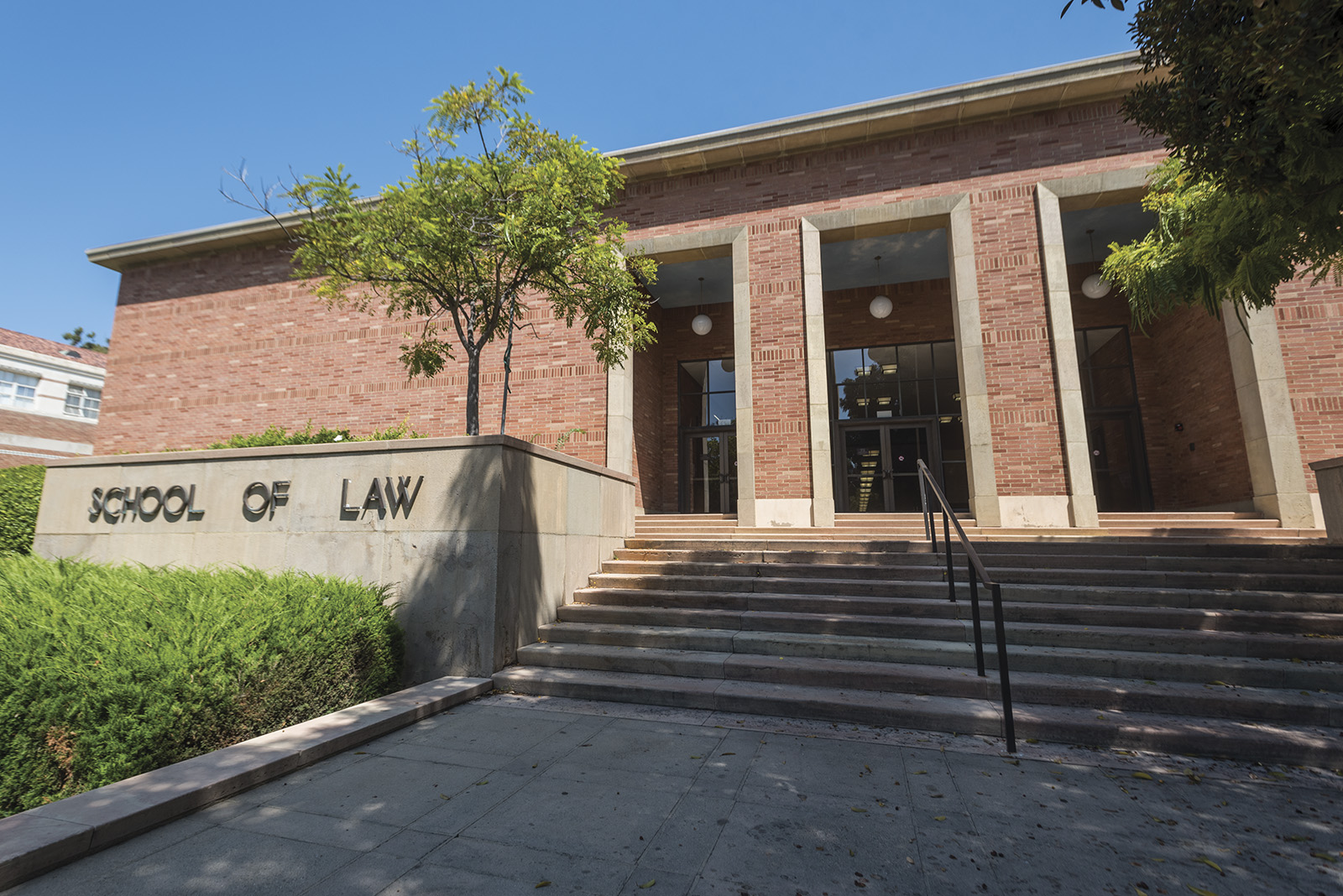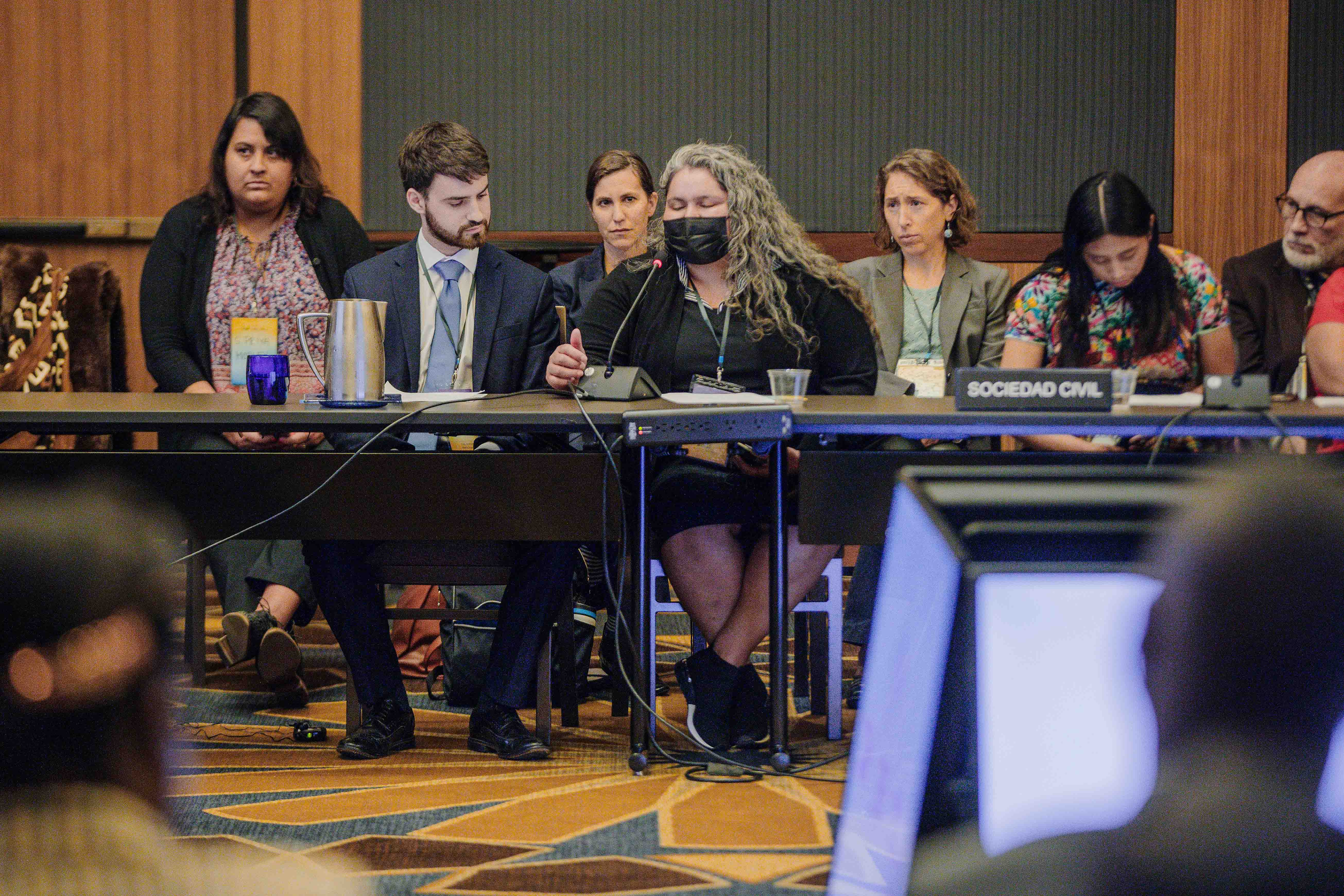UCLA Center for Immigration Law and Policy to defend in immigration parole case

The School of Law is pictured. The UCLA Center for Immigration Law and Policy is defending seven individuals in a court case against Texas and 19 other states to preserve a longstanding immigration policy. (Daily Bruin file photo)
By Christopher Buchanan
Sept. 28, 2023 12:26 p.m.
The UCLA Center for Immigration Law and Policy is defending seven individuals in court after Texas and 19 other states challenged the legality of a migration sponsor program.
Texas and 19 other states as plaintiffs – including Florida, Ohio and Utah – filed a lawsuit against the Department of Homeland Security in January after the department allowed United States residents to financially sponsor a two-year residence in the U.S. for individuals from Cuba, Haiti, Nicaragua and Venezuela. According to the U.S. Citizenship and Immigration Services list of processes, the CHNV parole program will grant 30,000 monthly travel and immigration parole authorizations for those that have a U.S. citizen to financially sponsor their residence. U.S. sponsors must complete an I-134A online application, prove their financial ability to support another individual, undergo security screenings and warrant favorable consideration.
A federal district court in Texas granted a motion for CILP to represent seven U.S. sponsors as defendants alongside the DHS, according to a UCLA Law press release.
Talia Inlender, deputy director of CILP, said this program differs from traditional asylum programs because of the sponsorship aspect. She added that this parole system allows for lawful entry into the U.S. for two years, which can lead to permanent residence.
“The program is really geared towards helping individuals come lawfully to the United States through a parole pathway,” Inlender said. “The federal government has determined that people from these four countries have urgent humanitarian reasons to come to the United States and or bring significant public benefit.”
Tasha Moro, a communications director of the Justice Action Center – a nonprofit litigation organization concerned with immigrant communities – said her organization, alongside the Refugee and Immigrant Center for Education and Legal Service and CILP, filed a motion to intervene in the case and defend the seven U.S. sponsors. She added that 1.5 million U.S. citizens applied to participate in the program despite some states’ resistance.
“There’s a definite appetite for many folks who want to support their global neighbors through this program, and we want to preserve (those) freedoms,” Moro said.
Texas and the other states argued that these parole programs failed to give proper notice or create clear procedure and exceeded DHS authority, and they also claimed that it caused economic harm to their citizens and states, according to the original complaint.
However, Inlender said similar programs have existed for decades.
“For seven decades this parole statute has been in the immigration laws, and over five presidential administrations have instituted parole programs just like the CHNV parole program,” Inlender said. “They’ve been used for decades to lawfully bring people to safety here.”
A recent refugee program, Uniting for Ukraine – a war-relief sponsor program which the CHNV program was modeled after — faced little resistance from lawmakers, Inlender said.
Ilya Somin, chairman of constitutional studies at the Cato Institute – a public policy research organization – and a Uniting for Ukraine sponsor, said he believes there is a political element to the disproportionate resistance to migration from Latin American countries compared to Ukrainians coming to the US.
“The way they work is almost identical,” Somin said. “Except for the fact that in the case of the CNVH program, the total number of people allowed in from those four countries combined is capped at 30,000 per month, whereas in Uniting for Ukraine, there is no numerical cap.”
The two-day trial was held at the end of August, and both sides are currently preparing for a post-trial briefing to further support their case, Moro said. She added that the case will conclude Oct. 27 and a final decision will likely come in November.
If the defendants lose their case, it is likely that the decision will be appealed, Moro said.
Somin said that based on the original complaints, he believes Texas and other states would benefit from the program’s existence
“Based on what the plaintiff states themselves … there’s clearly an urgent humanitarian need, because the people in these countries are suffering horrible oppression, and there’s also a significant public benefit of reducing pressure on the border,” he said.
Moro said she believes it is important for the program to remain operational for the future of immigration law.
“It’d be really important for this program to remain intact, not just because of all the lives that would be impacted, but also because of the precedent that this has set for parole down the line,” Moro said.





